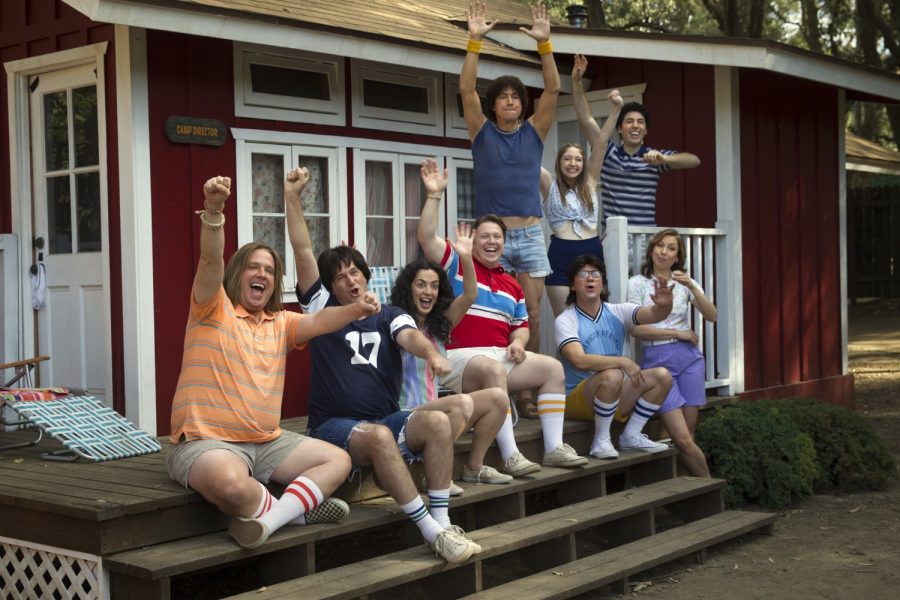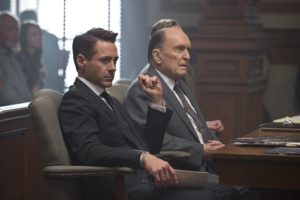
While looking through my many drafts, I found this post from almost two years ago. I never got around to polishing it, or by the time I did, it was already two months after the fact, which made me embarrassed to show how long I had procrastinated, so I just left it there. Though a bit outdated, I still have the same sentiments, so might as well let it see the light of day now. (Notes in bold are my new additions.)
I’ve been away for the past 3 weeks on a holiday (and by past 3 weeks, I mean the first 3 weeks of September 2015), but I managed to catch quite a fair bit of shows due to my extremely relaxed schedule in the latter half of the trip. (Netflix is great! Hope it comes to Singapore soon, and none of the geo-blocking shows crap.) (Netflix came to Singapore in January 2016, and unfortunately, it had the “geo-blocking shows crap” — by which I meant some shows available in the US weren’t available here.)
On the plane there and back, I was heartened to see many people watching Mad Max: Fury Road. (Fury Road came out in May 2015, so back then it was new to in-flight entertainment.) I rewatched it, and came to the conclusion that movies really aren’t meant to be watched on airplane screens, where colours are washed-out, the aspect ratio is wrong, and the screen is tiny. Especially Mad Max. People who missed it in theatres, you missed the chance to watch it in its gorgeous entirety.
Still, I had about 40 hours total to while away on my flights, so I also caught two other movies, Helios and Man Up. Man Up is a funny British romcom about a girl so done with dating (Lake Bell), who finds herself mistaken as the blind date of a funny guy played by Simon Pegg, and decides to her surprise to go along with his misconception. It was good entertainment for one and a half hours, because Lake Bell was goofy and likeable, and Simon Pegg endearing.
Helios was a Mandarin blockbuster that I meant to catch in April (it came out in April 2015), but didn’t get the chance to. It had a famous international cast of stars from Hong Kong, China and Korea. The plot, about thwarting a terrorist chemical attack in Hong Kong, was so-so, but the action wasn’t bad, and I really like Ji Jin-Hee, one of the Korean stars in it, so it was enjoyable.
In Toronto, I caught Wet Hot American Summer: First Day of Camp on Netflix in my friend’s house. It is so ridiculous it is hilarious! Getting all the adult stars to pretend that they are still teenagers is a freaking stroke of genius. It also spoofs many movie and TV tropes, and some of the things that happened were downright nonsensical. They also cast a whole host of famous names as well as some less famous ones from the original movie, which I have not watched. The humour was really juvenile though. Really, teenagers? That’s what passes for funny to you?
I also watched several documentaries there, including ones on hunger (A Place at the Table) and obesity (Fed Up) in America. (You can find them online if you search hard enough.) It’s shocking how the political processes of the US government and self-serving corporations and their all-powerful lobbies hinder the ability for the government to do much, if any good in American citizens’ lives. You can be President of the United States, but you can’t just enact change, because the system of checks and balances and the lobbies that place pressure on congressmen and senators will ensure that if you want your bill to pass through Congress and the Senate and get signed into law, you will have to make compromises so drastic that in the end, the benefits of the new law are practically negligible.
It made me feel very lucky to live in Singapore instead. Compared to their broken system, Singapore’s “benevolent dictatorship” has (so far) been in the hands of people who by-and-large want the best for the country, and so we benefit from measures that the US would either never pass, or take umpteen years to pass and not without whittling it down to a mere shadow of what it could be first.
(Of course, when I wrote this in 2015, I never thought in my worst nightmares that a corrupt, self-serving dictator and childish madman like Trump would be elected. Now the checks and balances are the only saving grace between the rest of the world and him. Not that they’re helping much, because Republicans make up the majority of Congress and the Senate. As long as they put party over country and keep enabling and excusing him, no matter how much of the Constitution he blatantly flouts or thinks doesn’t apply to him since he’s the King “President”, nothing will happen to him.)
I also watched Undefeated, the 2012 Oscar-winning documentary about an underdog high school football team that managed to win more games than they had ever done before and reach the playoffs. Poverty and bad backgrounds of the players were touched on in the documentary, which gave serious food for thought.
Finally, I watched Out of the Clear Blue Sky, which is about the tragedy that struck Wall Street trading firm Cantor Fitzgerald when 658 of their 900+ employees in New York were killed in the World Trade Center on September 11. They made up about almost a quarter of all the losses suffered on that day.
I deliberated very hard on whether to watch it, because I had just been to the 9/11 Memorial & Museum earlier that day, and I wasn’t sure I wanted to watch such a heavy topic. I didn’t finish walking all the museum exhibits, but I had stopped for a short moment in the aftermath section and happened to see news clips of a CEO crying in an interview and being astonished that his employees still wanted to continue working in the days after the attack, when he felt that they should all just go to funerals. He also mentioned having 700 families to take care of, and so when I saw this documentary on the Netflix queue, I realised that the CEO must have been from Cantor Fitzgerald. And I wanted to know their story.
It was awful to hear them talk about suffering the loss of their loved ones and coworkers. At the same time, the documentary shows how miraculous it was that the business was able to recover despite the loss of everyone who went to work that morning, and how the CEO, Howard Lutnick, was able to make good on his promise to take care of the families of all his deceased employees. He gave the victims’ families 25 percent of the firm’s profits for the next five years, and provided health insurance coverage for them for 10 years, in addition to holding annual events where the families could come together and support each other, and being their spokespeople for issues concerning 9/11, including the building of the 9/11 memorial. The documentary was made by one of the victims’ sister, and interviews many other of the victims’ families, along with the key players, which is why I trust it.
(I was particularly struck by how Lutnick recounted that on the day after 9/11, there was a conference call with all the CEOs of the Wall Street major trading firms, and when asked if they could all continue trading the next day, they said yes, uncaring that one of the firms among them had just suffered immense losses and were likely to collapse if they were unable to partake in trading the next day. This moment is also shown in the trailer. Since everyone was saying yes, Lutnick had to say yes. It was a sink-or-swim moment in which overnight, his remaining employees in the US and their London office had to pull together to figure out how to be ready for trading the next day. And out of all the CEOs in that conference call, only one expressed condolences to him for his firm’s immense loss. And I remember thinking: wow, the bankers on Wall Street are really heartless.)
(Anyway, President Obama was criticised heavily two months ago for accepting a US$400,000 speaking fee from a Wall Street firm, but when I found out that the firm was Cantor Fitzgerald and that he was going to be speaking on healthcare, I remembered their story, and so I didn’t begrudge him that fee — even though others have called him hypocritical for helping out Wall Street, when he called them “a bunch of fat cat bankers”. I would have thought differently if it were Goldman Sachs.)
I also watched a TV movie called 9/11: The Falling Man about two weeks before I went to the museum. It was about the people who chose to jump from the towers instead of dying a fiery death, and why they were hardly talked about whenever the topic of 9/11 came up. It focuses on one of the most infamous photographs of a jumper that day whom people tried to identify, causing trauma to the family members of the man it was suspected to be, because they saw it as their father/husband giving up and committing suicide instead of trying all means and ways to get back to them. But it turned out that the jumper had been identified wrongly — causing great relief to the previous family — and at the end they found whom they are pretty sure was the actual person.
It was a very difficult show to watch (as was Out of the Clear Blue Sky), but it educated me on the actual number of people who jumped on that day (about 200 or more, it was estimated). For years, I had laboured under the misconception that it was just three people, due to me skimming too quickly through a news article I read in the early days after 9/11.
You can watch a video below about the photograph that the film talks about, if you’re up for heavy stuff.





